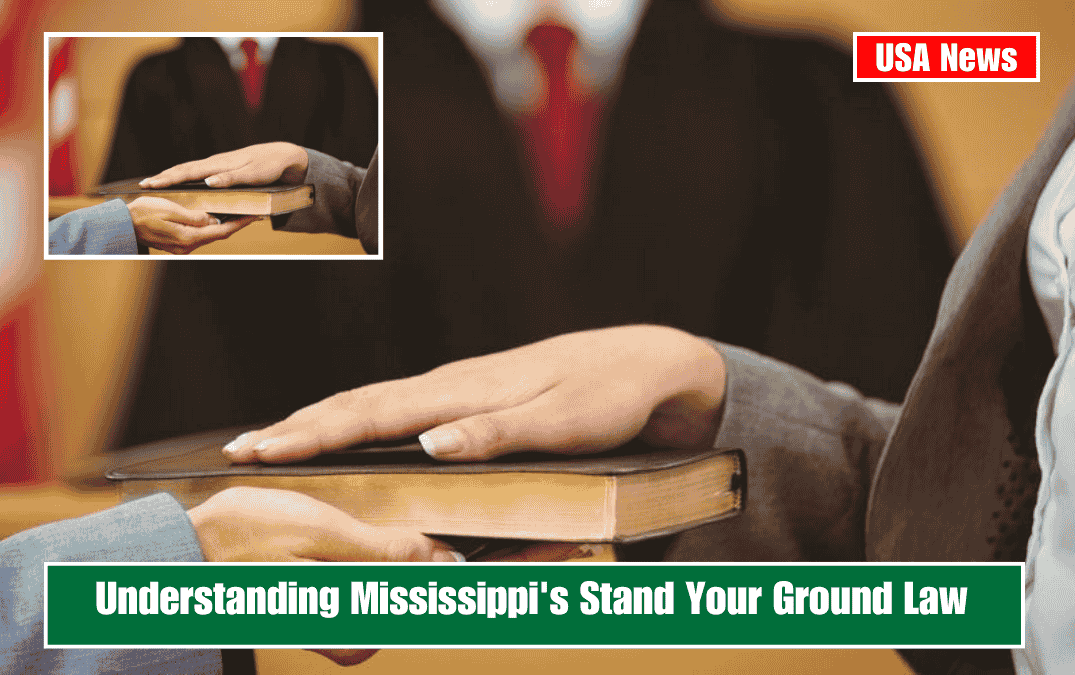Mississippi’s Stand Your Ground law is a significant component of the state’s self-defense statutes, shaping how individuals may legally respond to threats of violence in both public and private spaces. Understanding its provisions, limitations, and implications is crucial for residents, firearm owners, and anyone interested in personal safety or criminal law in the state.
What Is the Stand Your Ground Law?
Mississippi’s Stand Your Ground law removes the traditional “duty to retreat” before using deadly force in self-defense. Under this law, if a person is not the initial aggressor and is in a place where they have a legal right to be, they may use deadly force to defend themselves or others from imminent threats of death or serious bodily harm, without first attempting to escape or withdraw from the situation.
Key Provisions
No Duty to Retreat:
Unlike older self-defense laws that required a person to retreat if safely possible before using deadly force, Mississippi’s law allows individuals to “stand their ground” and use force, including deadly force, if they reasonably believe it is necessary to prevent imminent death, great bodily harm, or the commission of a felony against themselves or another person.
Justifiable Homicide:
The law specifically states that the “killing of a human being” is justifiable when resisting an attempt to unlawfully kill or commit a felony upon the person, or in any dwelling, occupied vehicle, place of business, or employment, or the immediate premises thereof. This extends the right of self-defense beyond the home (the “Castle Doctrine”) to public spaces.
Presumption of Reasonableness:
Mississippi law creates a presumption that a person who uses force was legally present and reasonably feared imminent death or great bodily harm if the other party was forcibly or illegally entering the location. This presumption shifts the burden to prosecutors to prove that the use of force was unreasonable, rather than requiring the defendant to prove it was justified.
Protection of Property:
The law also allows the use of deadly force to resist certain property crimes, such as when someone is committing a felony on the premises of a dwelling, vehicle, or business occupied by the defender.
Limitations and Responsibilities
Not for Initial Aggressors or Unlawful Activity:
The protections of Stand Your Ground do not apply if the person using force is the initial aggressor or is engaged in unlawful activity at the time.
Reasonable Belief Required:
The use of deadly force must be based on a reasonable belief of imminent danger. If the threat does not involve a risk of death or serious bodily harm, deadly force may not be legally justified.
Legal Consequences and Investigation:
Even when claiming self-defense under Stand Your Ground, law enforcement will investigate the incident. If authorities believe the use of force was not justified, the individual may face criminal charges such as aggravated assault, manslaughter, or murder. The prosecution must then prove the force was not justified under the law.
Stand Your Ground vs. Castle Doctrine
While the Castle Doctrine allows for the use of force without retreat in one’s home, vehicle, or workplace, Stand Your Ground extends this principle to any place where a person has a legal right to be. Both doctrines are designed to protect individuals who act in self-defense, but Stand Your Ground is broader in scope.
Mississippi’s Stand Your Ground law provides robust legal protections for individuals who use force in self-defense, eliminating the duty to retreat in most situations.
However, these protections come with responsibilities: the defender must not be the aggressor, must not be engaged in illegal activity, and must have a reasonable belief that deadly force is necessary. Each case is subject to thorough investigation, and legal counsel is recommended for anyone involved in a self-defense incident.
SOURCES:-
[1] https://giffords.org/lawcenter/state-laws/stand-your-ground-in-mississippi/
[2] https://hpattorney.net/what-is-the-castle-doctrine-in-mississippi/
[3] https://legiscan.com/MS/text/SB2513/2025
[4] https://www.witherspooncompton.com/blog/2022/06/understanding-mississippis-stand-your-ground-law/
[5] https://en.wikipedia.org/wiki/Stand-your-ground_law









